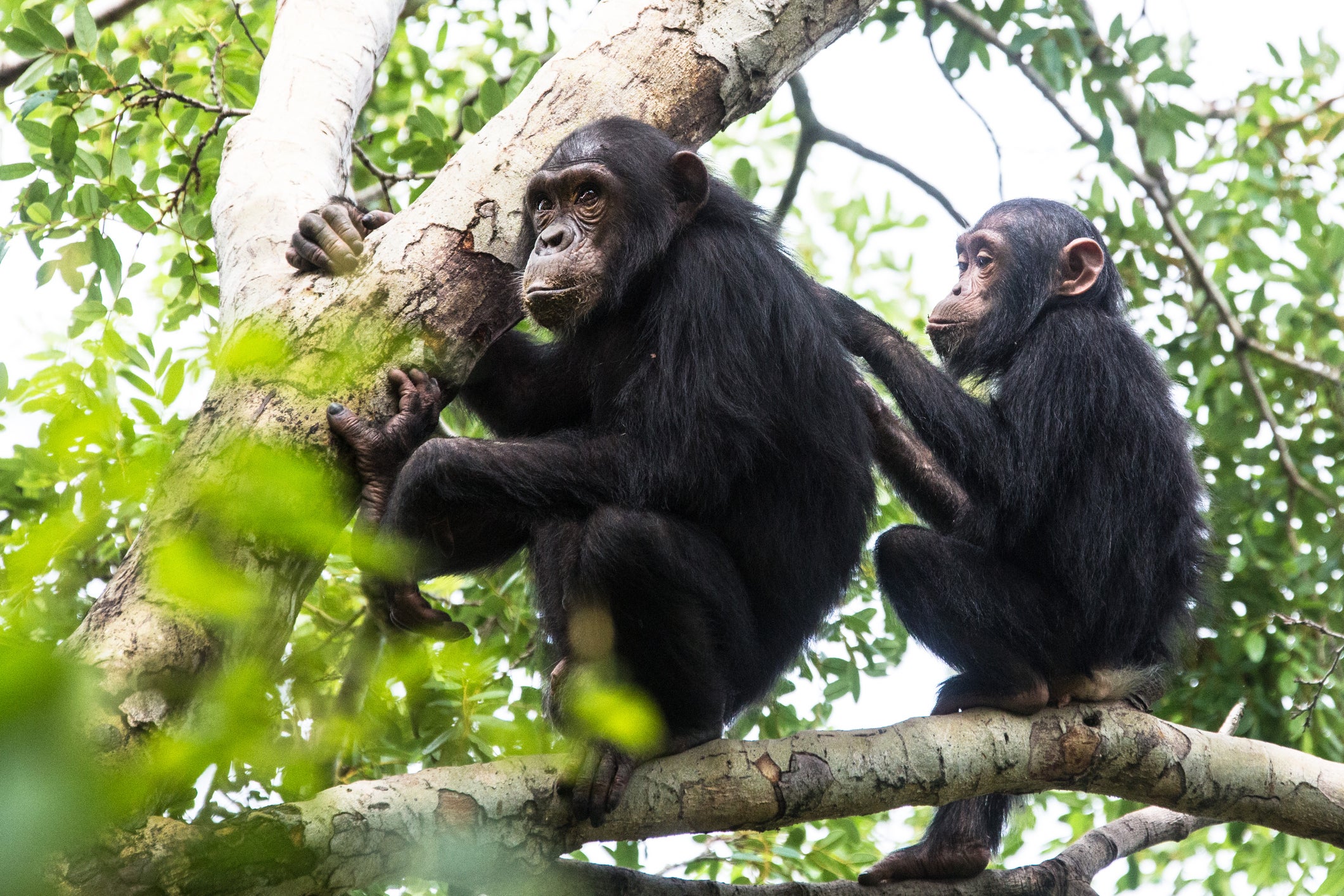Chimpanzees use war-like tactics against rival groups, study shows
Researchers believe this is the first evidence that ‘non-humans’ will use higher ground tactfully
Your support helps us to tell the story
From reproductive rights to climate change to Big Tech, The Independent is on the ground when the story is developing. Whether it's investigating the financials of Elon Musk's pro-Trump PAC or producing our latest documentary, 'The A Word', which shines a light on the American women fighting for reproductive rights, we know how important it is to parse out the facts from the messaging.
At such a critical moment in US history, we need reporters on the ground. Your donation allows us to keep sending journalists to speak to both sides of the story.
The Independent is trusted by Americans across the entire political spectrum. And unlike many other quality news outlets, we choose not to lock Americans out of our reporting and analysis with paywalls. We believe quality journalism should be available to everyone, paid for by those who can afford it.
Your support makes all the difference.Chimpanzees use strategies similar to humans during wars to tactically scope out their rival groups, researchers have found.
It has long been believed that animals will use hills and high places to see predators coming from a distance or to call out to other animals to mate.
Yet, little investigation has gone into whether these clever chimps also collect valuable information on other groups by spying on them from above.
A new study, from the German Primate Center and the French National Centre for Scientific Research, has found that chimpanzees use “high ground” to keep an eagle-eye on rival chimp groups, gathering information about them as they observe.
Humans have been using “high ground” tactics for over 2000 years with the Chinese military general Sun Tzu jotting down the strategy in his The Art of War handbook written somewhere between 475 and 221 BCE.

Researchers conducted the study in Taï National Park in the Ivory Coast between 2013 and 2016, monitoring two groups of neighbouring chimpanzees, watching their behaviour and movements.
Over three years of observing the rival gangs, the team found that these tactful primates were twice as likely to dash up hills if they were getting closer to their enemy’s territory than if they were going towards the centre of their own patch.
Researchers believe this is the first evidence that “non-humans” will use higher ground tactfully to scope out their rivals.
“Chimpanzees are able to consider which information is known and which has to be acquired to adopt planned travelling movements, and they collectively act upon gathered information in a low-risk engagement manner,” Sylvain Lemoine, archaeology professor at the University of Cambridge, and co-author, said.
While up high on the hills, the chimps also prefer to spend time relaxing and lolling about over noisily munching on their food as silence is key to listening out to the calls of the other monkeys.
Taking the higher ground also has a double meaning for these chimps. While the animals like to engage in a bit of espionage, they usually do everything they can to avoid battles with rival groups.
The researchers believe chimps climb hills to gather information on the opposing side’s presence but not to use against them, rather know when and how to stay away from them, as conflicts with rivals can be costly.
It is no surprise that chimpanzees use similar battle strategies to humans as they share around 98 per cent of our genes, according to the WWF.
Unfortunately, chimps are endangered, with approximately 172,000 to 299,000 left in the wild, typically found in the Congo Basin region of Africa.

Join our commenting forum
Join thought-provoking conversations, follow other Independent readers and see their replies
Comments